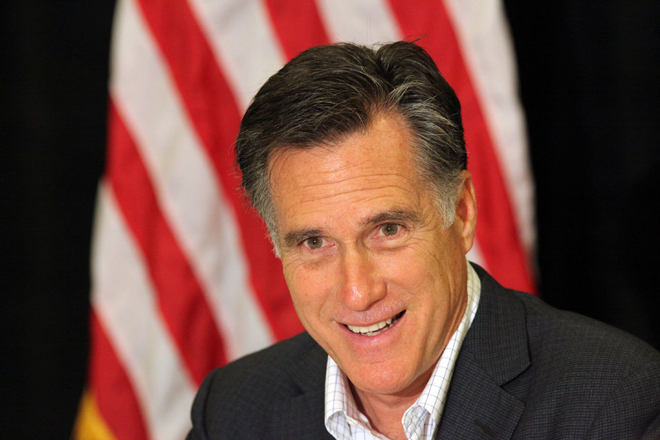For Republican strategists wondering why “You didn’t build that” wasn’t enough to push Mitt Romney into a lead while “47 percent” is breaking through, Haley Barbour may have an answer for you.
Barbour’s firm Resurgent Republic conducted focus groups of blue collar voters in Ohio and suburban women in Virginia who supported Obama in 2008 but are now undecided. Both are swing demographics that Romney is working to win over in order to flip each state from blue to red.
Their findings? Voters are a lot more willing to believe attacks based around Romney quotes than they are on Obama quotes.
“Whenever we showed direct quotes from President Obama over the last few years, voters consistently say that this is probably taken out of context and they don’t seem to hold that same standard with Governor Romney,” pollster Linda DiVall, who conducted the Virginia focus groups, said in a conference call announcing the findings Monday.
She added that while their reaction struck her as “a little bit unfair,” it was nonetheless “American voters’ right to do that.”
Pollster Ed Goeas said his own Ohio focus groups elicited similar responses, which could make things harder for Romney as he seeks to reverse his comments that 47 percent of Americans consider themselves “victims.”
“[It] raised the bar of what he has to prove to these voters — that he does have concern for them and more specifically that his plan is addressing the very problems that they’re feeling on a daily basis,” Goeas said.
Given the extreme emphasis Romney has put on attacking Obama based on quotes or snippets of lines, this could spell trouble. Just over the last two weeks, Romney has tried to reorganize his campaign to highlight a comment from Obama about “bumps in the road” in the Middle East and before that a quote from the president about not being able to “change Washington from the inside.” Before that, the Republican National Convention devoted an entire day to an out-of-context attack on Obama’s “You didn’t build that line.”
The good news for Romney, according to DiVall, is that a new ad in which Romney personally attests to his compassion for the poor and middle class tested very well with undecided women. She added that while voters were highly aware of Romney’s 47 percent quote, it was “too early” to tell the extent of its impact.
Barbour cautioned that the focus group participants were “the most difficult groups” for Romney to win given that they voted for Obama once already. Overall, however, the firm’s findings suggested significant hurdles Romney still needs to clear to have a shot, especially with women.
For one thing, while participants were negative on the state of the economy, many suggested that Obama needed more time before being judged given the extent of the 2008 collapse. Goeas also noticed that among Ohio blue collar voters, many “expressed general optimism on the future.” And while Obama didn’t seem to get too much credit from any group for his individual jobs policies or for his health care law, voters were bullish on the auto bailout — not only in auto-heavy Ohio, but northern Virginia as well.
For another, Romney’s jobs prescription, which many Republicans have criticized as overly vague, may be a hindrance. “The larger story is that both these voters feel, women in particular, that Romney has not spelled out his economic plan,” DiVall said.
In another disturbing trend for Romney, women’s health issues cut against him hard among the Virginia groups, especially college educated women, for whom they generated as much attention as the economy. The firm noted that much of the criticism had more to do with the Republican “brand” than Romney personally, but the damage was the same either way.
Barbour suggested that Romney had time to turn things around, but that it would take more than a much-hyped faceoff with Obama.
“I would be surprised if 100 percent of that is achieved in just the debates,” he said. “I think the burden is on [Romney]. It’s his election to win, has been the whole time, he has to do it.”






